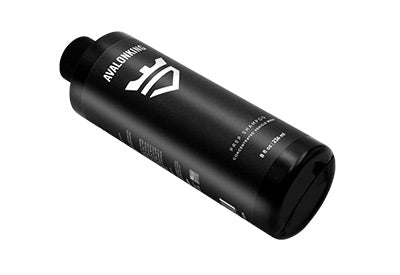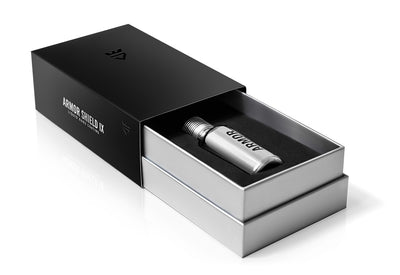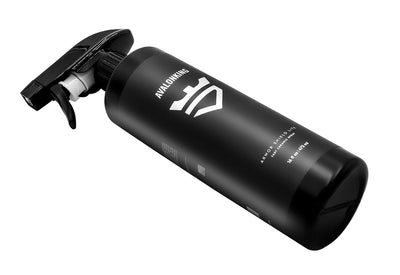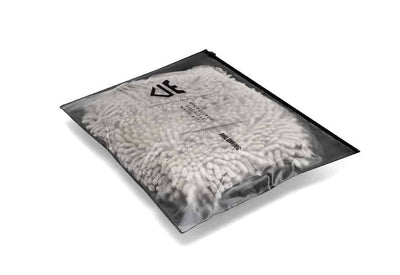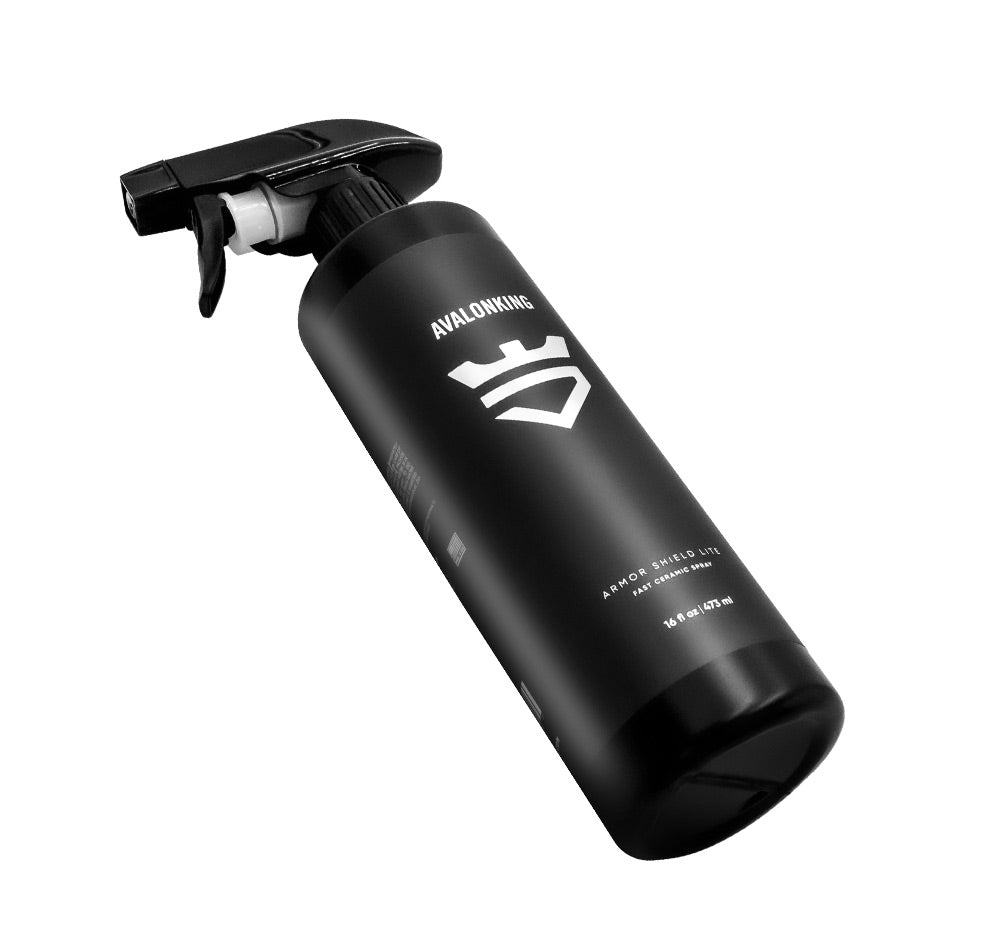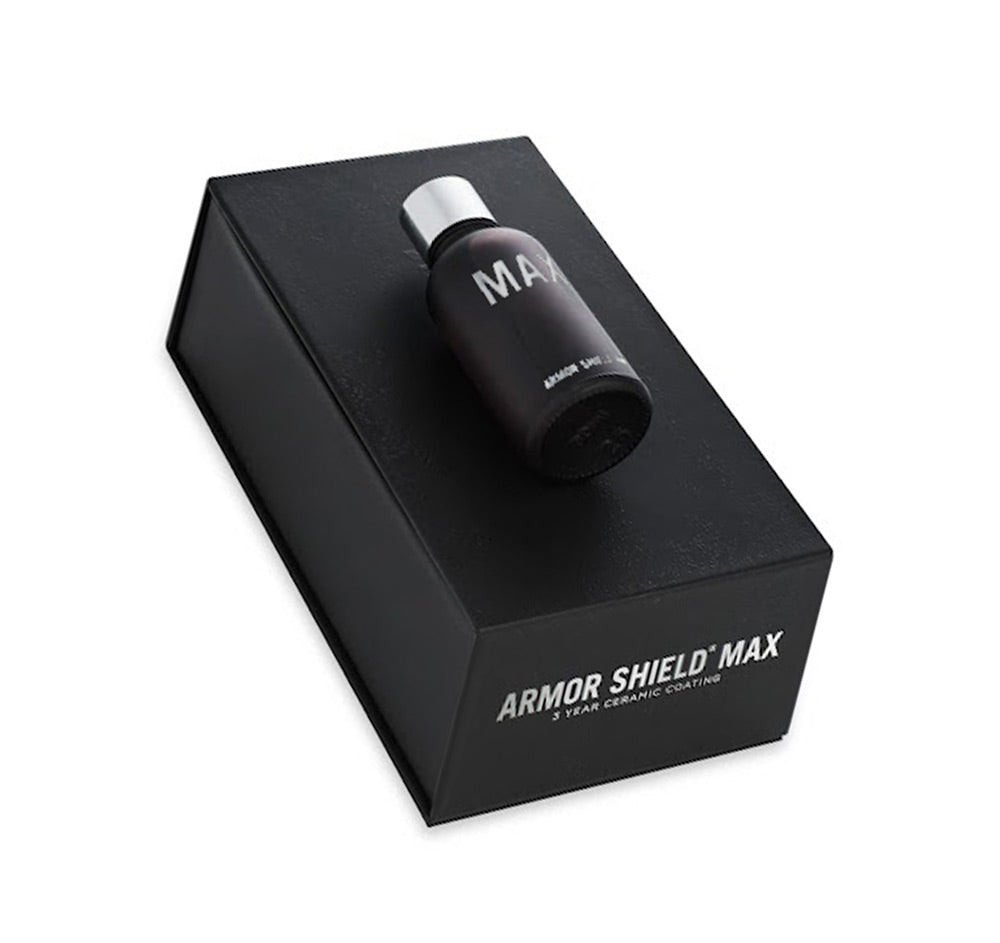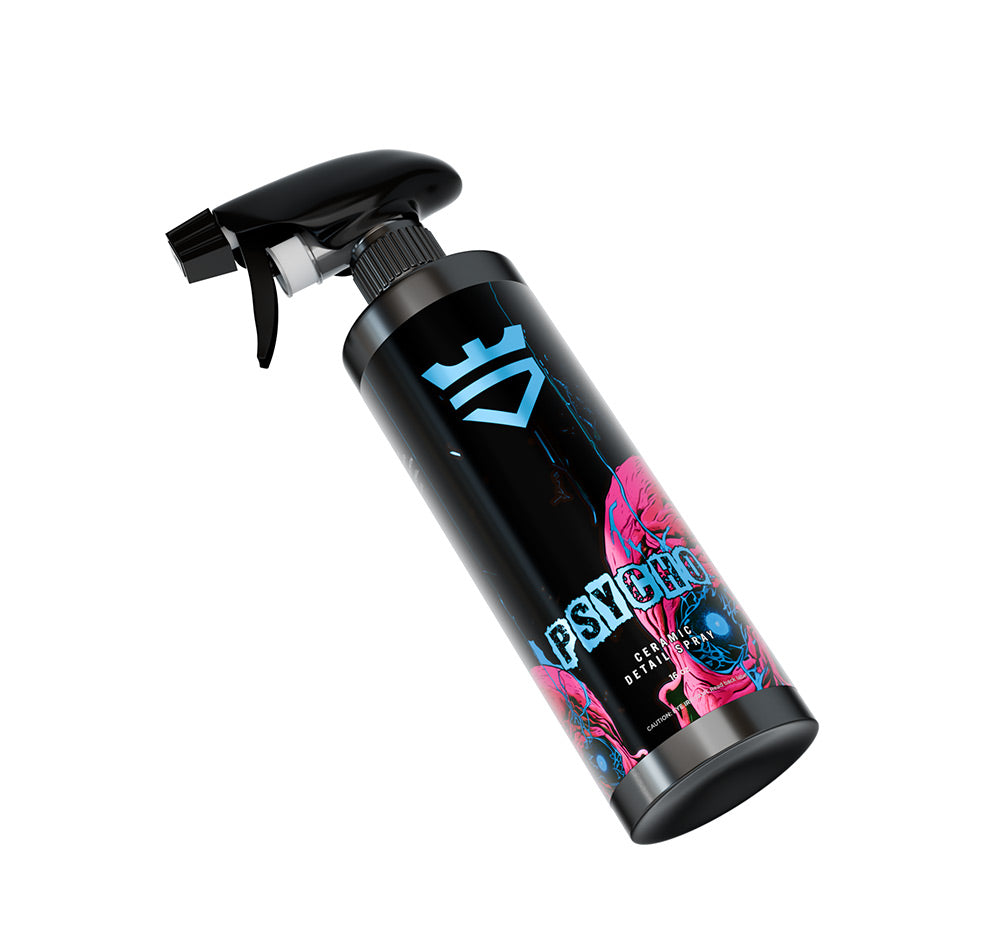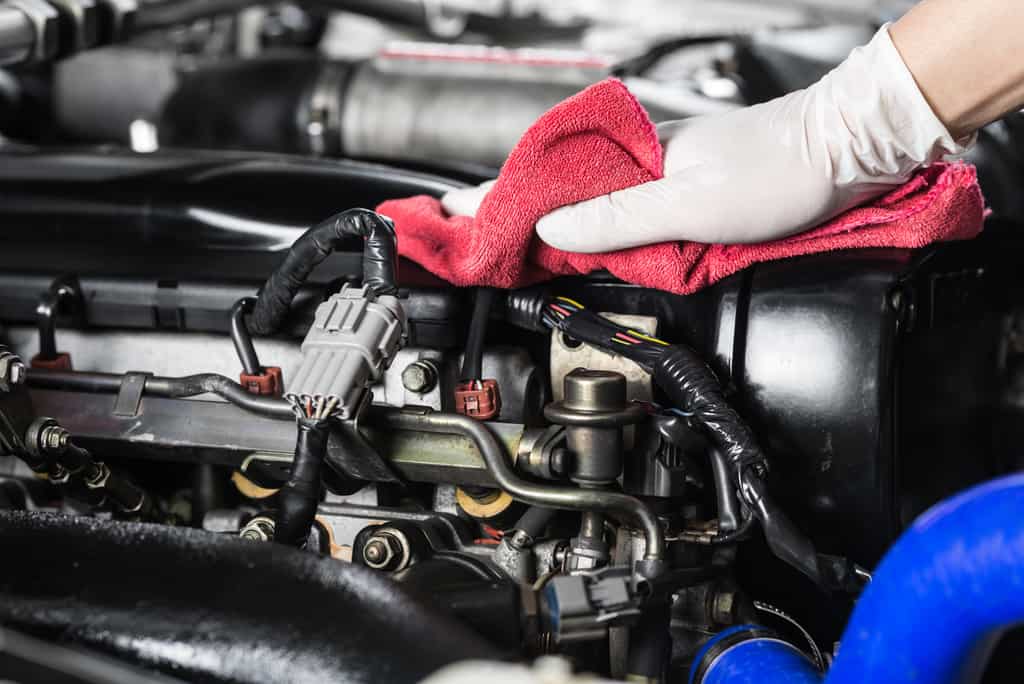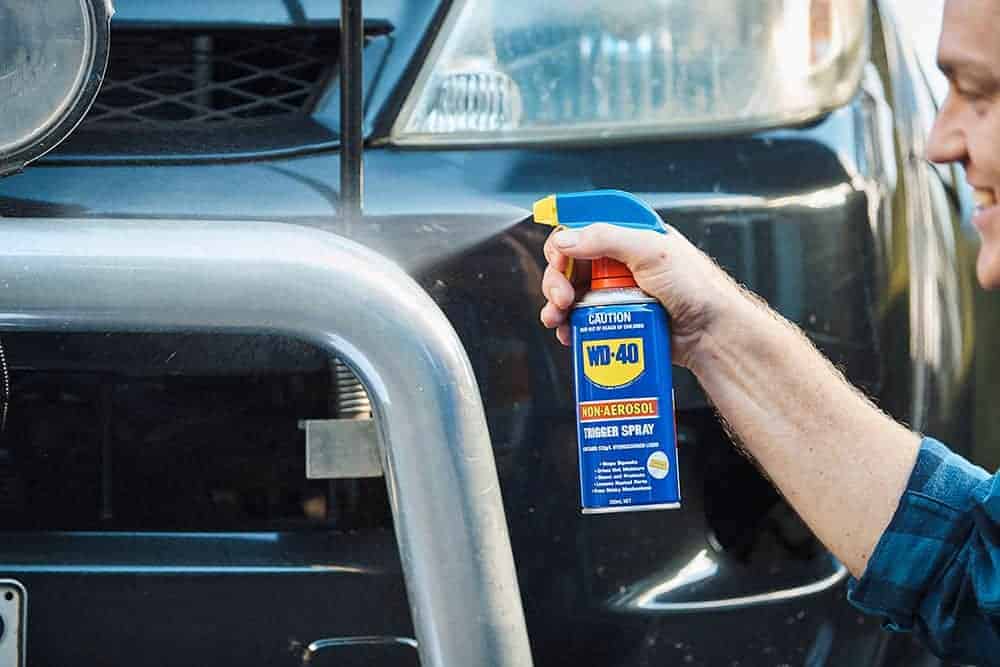The average DIY enthusiast is not afraid to push the boundaries. They’ll spend hours on YouTube.com looking into reviews from pro detailers, just to gain an extra few HP, improve cornering, or get a few extra miles out of a set of tires.
In recent years, a growing DIY trend is looking for better ways of improving paint protection and shine, and DIY ceramic coating was made to accomplish this task.
So, how do you select the right ceramic coating for your car? That’s the topic of today’s blog upload. Let’s explore some of the tips for choosing a ceramic coating based on several criteria. We’ll outline some of the pros and cons of each, and help you make an informed decision.
Comparing the Contenders
You’re searching for a ceramic coating for your car – so, where do you start? It’s kind of funny, but you’d be surprised how often a car owner knows what they want – they’re just not sure how to get there. Such is the case with choosing a ceramic coating.
The fastest growing consumer segment is automotive aftercare is ceramic coatings. There are professional-grade options like Ceramic Pro 9H, Opticoat, and others that are applied by professional auto salons. Then you’ve got the ever-expanding DIY nano ceramic coating market, and a slew of spray-on coatings that enter the mix.
There are three general grades of products you can select:
- Professional coatings applied for you.
- Do-It-Yourself Ceramic Coatings
- Ceramic Coating Sprays
While it appears that the three items above are simple enough to choose between, the fact is – each category is filled with good, great, and not-so-great options. This arguably is the main pain point with selecting a ceramic coating for your car.
So, let’s try to simplify your decision making.
What’s the Difference Between a Nano Coating and Spray Coating?
If you really want to simplify the choices, it really breaks down to two – a concentrated nanoceramic coating and a spray on ceramic coating.
The nano coating is what you’ll find at professional detail shops or auto salons. It’s a highly concentrated formulation that is comprised of elevated levels of liquid silicon dioxide (SiO2) and titanium dioxide (TiO2). You’ll also find most DIY nano ceramic coatings on the internet – such as AvalonKing’s Armor Shield IX.
So – what’s the major difference between a pro-grade product and DIY option? The answer is one word – solvents.
The solvents or carrier solvents specifically in a pro-grade ceramic coating are much heavier or concentrated than a DIY option. This ingredient allows the product to layer with every coating. So, a professional installer can add up to 10 coats of this stuff, which will pretty much hold up for more than 10 years.
The problem with elevated solvent percentages is that it makes application very tricky. So, to permit the average DIYer to apply a ceramic coating, manufacturers like AvalonKing formulate their products with lower carrier solvents.
The drawback is that you can’t layer DIY products on top of each coat. As such, the longest they’ll hold up is about 3 to 4 years.
There are two other main ingredients that determine the quality of a nano ceramic coating – SiO2 and TiO2.
The Ceramic Pro 9H base coating that is popular across the globe has about 65% SiO2 – while a DIY coating like Armor Shield IX has nearly 84% SiO2. So, what does SiO2 do? This is the secret ingredient that creates the slippery surface or hydrophobic properties.
TiO2 percentages with ALL ceramic coatings are a highly guarded secret – as this is the product that determines the hardness of the coating.
Then there is the spray ceramic coating. This type of product is “ceramic” by name – as we’ll explain below.
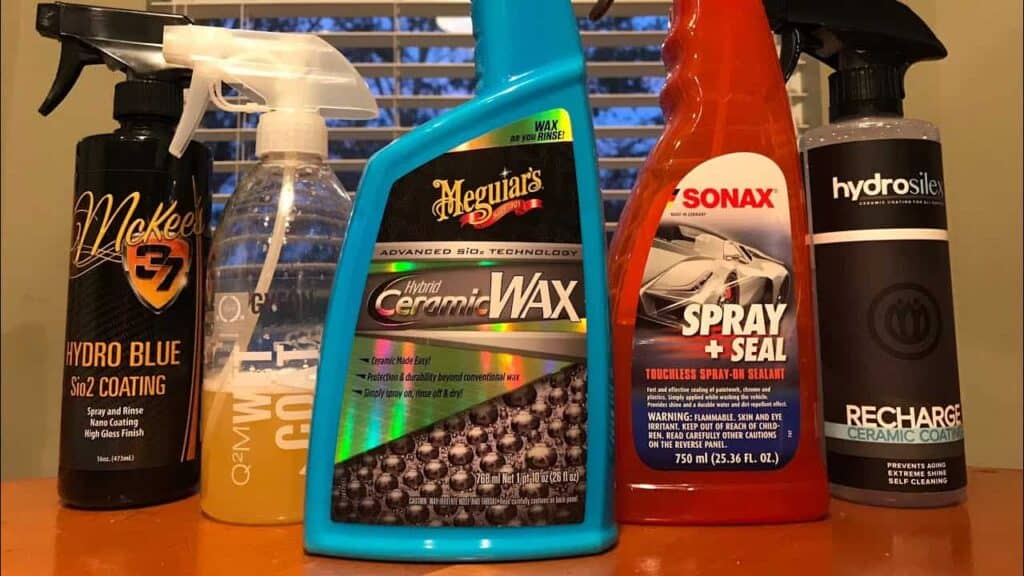
A ceramic product or substance is an inorganic and non-metallic material. Normal everyday items like bricks, glass, plates, tiles, and yes – even our toilets are ceramic in nature.
Ceramic products are found in high-performance racing engines, phone lines, and serve as high-temperature heat coatings – used on the Space Shuttle, aerospace parts, and yes – that coating you apply to your cars paint.
Due to this expansive and wide-range of definitions, companies making these “ceramic sprays” have the flexibility to pretty much put anything that sticks to paint. And that’s where the problems begin.
There are multiple grades of “ceramic coating sprays” on the internet today:
- SiO2 Boost Sprays: Now, this is the real deal ceramic coating in a spray bottle solution. It’s made up of about 10 to 20% of that slippery-producing ingredient as well as a good amount of TiO2 for hardness or protection.
- Teflon-Based Sprays: Teflon has been used as a ceramic ingredient that produces great anti-stick properties for decades. Several ceramic sprays for cars are Teflon-heavy – which replicates the slick surface attribute of a ceramic coating – but do little to provide protection.
- Hybrid Spray: This is where crazy scientists in labs start rubbing their hands like the evil overlord looking to rule the world. They are usually blend of SiO2, Teflon, and synthetic wax. I’m not quite sure of the ‘science’ behind these sprays, but many people swear by them. All I can tell you is that applying a hybrid spray on top of a nano ceramic coating doesn’t work very well.
Choosing Your Ceramic Coating
Now that you’ve got a general understanding of the different options of coatings, it’s time to choose one for your vehicle and specific situation. There are three questions you should ask anytime you’re considering a ceramic coating.
Question #1 – How Long Do I Expect it to Last?
The main attribute of a ceramic coating is protection first and foremost. The general rule of thumb is that the more coatings applied, and the stronger the formulation of TiO2, the longer it will last. Naturally, the professional ceramic coating is the king in this area.
For example, a company like Ceramic Pro offers three different package options – which are based on the expected longevity of protection.
Bronze Package – 2 Year Warranty
Their first option is their entry point. It’s a two-year warranty and includes a coat of their Ceramic PRO Top Coat. They will coat your paint surface, wheels, plastic trim, and windows with this package.
Silver Package – 5 Year Warranty
The next level up is a five-year warranty of ceramic coating protection. This is where they’ll use their proprietary Ceramic Pro 9H nano coating. You’ll get (1) coat of the 9H, (1) of the Top Coat, and applied to all parts of your car mentioned above.
Gold Package – Lifetime Warranty
The Bugatti of ceramic coating protection in Ceramic Pro’s Gold Package. This really is no joke and intended to the ultra-passionate enthusiast that is looking for the ultimate protection and shine.
With this you’ll get (4) coats of the 9H, (1) extra coat on exposed areas, (1) of their Top Coat, (1) layer of coating on wheels and plastics, (1) coat of their special formulated 9H coating for windshields and windows, and they’ll even kiss you on the cheek – from what I’ve heard.
So – if you’re looking for a lifetime, professional coating and are willing to drop a few thousand on the coating, that’s something you should consider.
DIY Nano Ceramic Coating – 2 to 5 Years
If you’ve got some sticker shock – and many people do, the DIY nano coating is a practical and much more affordable option. It’s a highly concentrated liquid polymer that is infused with SiO2 at an aggressive percentage. Armor Shield IX is considered the best DIY ceramic coating (not by us – but the thousands of customers who have reviewed the product over the past two years).
A superior DIY nano coating is going to have an SiO2 percentage above 80 percent, but lower than 86 percent. This is the ‘happy zone’ which allows DIYers to apply it themselves. However, the main difference between the pro and DIY grade is the inability to layer coats. While this makes it easier to apply – it simply won’t last as long.
There are several grades of DIY nano coatings, and you can pretty much rate them based on their SiO2 percentage. You’ll find cheap DIY ceramic coatings on Amazon or E-Bay, that can be sold for as little as $5.00 per 30ml bottle, but they rarely last a year – and you need to purchase supplies to apply them in most cases.
Spray Ceramic Coatings – Six Months or Less
This is stuff like Chemical Guys Hydrocharge, Adams Spray Ceramic Coating, and others brands out there. It’s very easy to apply – as you simply spray the surface, wipe it off with a microfiber towel, and flip the towel to a dry side to buff off the residue.
These products can be used as a ceramic coating ‘booster’ – which helps to extend the lifespan of your nano-coating, or a standalone product. The hydrophobic properties can hold up for about a year, but in most cases, it’s a product many consumers apply once per month or every few months.
Question #2 – What is Your Prep Work Comfort Level?
A ceramic coating, even the cheaper spray on products, are made to enhance what’s underneath – not fill or repair scratches or damage. That means, if your car has little scratches, they will be amplified with a ceramic coating. To avoid this situation, all coatings require some prep work to produce an elegant shine.
A ceramic coating – even the professional grade products – involve the following requirements to bond to the surface.
- Debris, wax, and contaminant free surface.
- Scratch Free and no paint damage
- A clear coating on automotive paint
- No greases or oils on the surface
To accomplish this, there is a recommended four step process:
- Decontamination car wash. This will use a wax-stripping detergent car shampoo which will help to break down older layers of wax or paint sealants.
- Clay Mitt or Clay Bar Treatment. With this step, you’re removing small contaminants that become trapped in clear coats and other porous surfaces.
- Paint Correction. If you’ve got ANY small scratches, stains or paint imperfections, paint correction or polishing is highly recommended. This is where most DIYers struggle.
- IPA Spray Wipe Down. After all prep work is complete, you’ll wipe the surface with a diluted isopropyl alcohol solution (30% IPA to 70% distilled water) using a microfiber towel. This will remove any oils or grease from the steps above.

The decision you’ll make is whether you feel comfortable with this level of prep work yourself. If not, you should probably contact a local auto salon to ask about professional ceramic coatings or ask them if they can help with these steps while you apply the coating.
Question #3 – What’s My Budget
Let’s face it – money is always the determining factor when making any purchase. If money is not an object, then having a professional apply a coating is the ultimate level of cool and comfort. Plus, you’ll get the ultimate shield of protection – bar none.
However, most of us are not loaded with cash trees in the back yard. So, the DIY ceramic coating is really the best option in this case. Here are a few specific things to consider.
For those looking for the best buy, a DIY ceramic coating that can last from 2 to 5 years is your best value by far. Most ceramic coating sprays will cost you anywhere from $30 to $50 – for about 3 applications (on your average two-door coupe).
If you complete this method every 3 months, you’ll go through 4 bottles in two years – costing you as much as $200.
The DIY nano ceramic coating kit like Armor Shield IX costs you $69.99 – and includes everything you need to apply it correctly.
Wrapping it Up
The ceramic coating world is filled with contenders and pretenders for your hard-earned money. There are several companies that are simply looking to take advantage of a hot consumer market, and those that offer real world solutions that are high-quality, easy to use, and backed by amazing customer support.
Always do your homework anytime you’re considering a ceramic coating – as you’ll find the best companies have a proven track record that you can trust.

